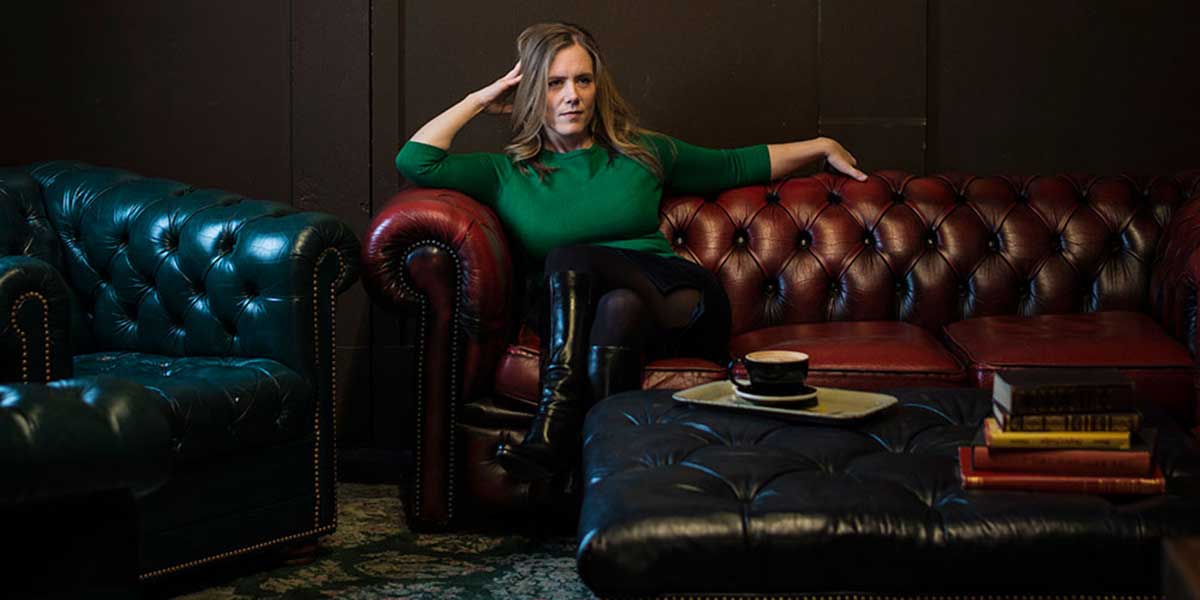Greetings, and welcome to SarahHepola.com. If you’ve come to this site, you are probably curious about me, or excessive drinking, or the phenomenon of public crying, so we welcome you. Pull up a chair, pop open a Topo Chico, and let’s get to know one another.
What is a Sarah Hepola?
A Sarah Hepola is a curious woodland creature who stands 5’2” in the wild, 5’6” in urban environments, where she insists on wearing heels. She has been known to write stories about things that happened to her.
What can I do about this?
Nothing. People have tried.
What kinds of stories do you write?
I wrote a book about my drinking problem called Blackout. Dwight Garner at the New York Times called it “simply extraordinary,” and who am I to argue with Dwight Garner? The book has been translated into several languages. I’ve also worked in journalism for more than two decades. I’ve been a movie and theater reviewer, a culture writer, a music critic, a sex blogger, a travel columnist, a personal essays editor. You can rummage through the archives here.
Are you working on anything now?
Yes. I’m currently working on my second memoir, which will be published by the The Dial Press/Random House. The book is about a forty-something woman who expected marriage and children but didn’t end up with either. Mistake? Gift? Let’s discuss. It’s about dating, love, sex, and other questionable decisions. It will come out I’m finished with it, which is somewhere between now and the end of time.
I’m also a writer-at-large for Texas Monthly, where I’m developing a narrative podcast about the cultural impact of the Dallas Cowboys Cheerleaders that should debut in fall 2021. I dabble in freelancing from time to time, and I doodle on my blog.
I think I may have a drinking problem. Can you help me?
Yes and no. I can’t get on the phone with you or anything, but I’ve logged my years in that lonely hole, and I’ve written several articles that might be useful to you. My five-part “Ask a Former Drunk” series begins with the question, “When do you know you have a problem?” and goes on to tackle topics like sex and alcohol, how to keep your life from being boring, and how to get started. But if you need help with a drinking problem, and I certainly did, I recommend one of the many recovery groups, sobriety podcasts, and online communities designed for that purpose. Here’s one that worked for me.
Do you talk about anything other than drinking around here?
Oh yes. We talk about travel, pop culture, the pitfalls of technology, the complications of feminism, the low hum of being alone, our own stubborn need to be loved and what to do about that. If there is a unifying theme on this sprawling megalopolis of a website, it would not be drinking. It would be something like the need to connect or the conflict of the human heart. Also the best way to combine chocolate and peanut butter (your finger).
What’s with all the public crying?
A mystery to me. Temperament? Raised by a therapist mom? Excess of estrogen? But if you spend any time with me, you’re gonna watch me cry. Not if, but when. New friends tend to mistake my tears for something rare and special, like I am really letting them in, but the longer they know me, the more they’re like: Oh right, you’re crying again. If you are a man undone by women’s tears, we should NOT date. (Honestly, we should not date anyway. I don’t even know you.) I wrote a dating series called “Crying in Restaurants” for the defunct site Nerve, and I still love that title and hope to repurpose it one day. I would like to normalize public crying; you can find old stories about soldiers crying on the battlefield, crying was a form of valiance, not weakness. That’s me. I will place my crying ability up against any human.
How can I become a writer?
Don’t quit.
No, seriously.
I’m being serious. I mean, there are a passel of behaviors that predispose a person to this profession: Facility with language, a curiosity about humans, an urge for exhibitionism mixed with a need to hide. And I can offer you mundane advice: to read more, to use active verbs, to listen and observe, to be rigorous with your prose, to tell the goddamn truth. But at some point, this career is for those who claim it. I heard Hanya Yanigahara say this at an event for her book A Little Life. “It’s not necessarily the most talented writers who get published. It’s the ones who finish.”
Do you have any goals for this year?
To finish.

